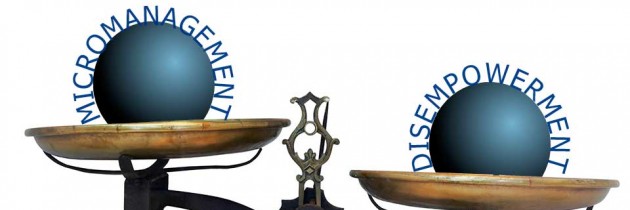Finding the Right Balance on the Board
Micro-management or Disempowerment?
by Henry Contant, SCSBC Executive Director ◊
For some time, SCSBC board governance workshops have stressed that school boards ought not to micro-manage and get mired in the operational side of the school. Instead, school boards have been encouraged to be strategic, spending most of their time on the school that doesn’t yet exist, the school in two years, five years, ten years, or even fifty years. Boards have been challenged to spend most of their time in the “crow’s-nest” looking ahead, rather than “on-deck” managing the day to day matters of the school.
However, has the pendulum swung too far?
Some school boards now lament the fact that by removing themselves from the operational side of the school they feel they have lost their voice. How does a strategic and future-oriented board remain able to speak into an issue of deep concern to them when the principal or superintendent has deemed it operational, and thus not the board’s concern?
Mary Lynn McPherson, in her recent article Avoid Board Disempowerment, provides an excellent example to which all school board members can relate. She also offers some practical advice on how to ensure that policy governance is meant to empower the school’s administration without disempowering the school board.
For example:
A school board member raises a concern: for two months in a row, the business manager has failed to provide requested internal control plans in response to the auditor’s management letter. Three times last year, the interim financial reports were not submitted in advance, but were instead handed out at the board meeting.
The principal/superintendent’s position so far: management team composition, financial statement preparation, and internal controls are all operational responsibilities.
 Sometimes board members are so hesitant about broaching any subject that is operational that they don’t voice their concerns. Or, they may too readily accept a principal/superintendent’s warning that day-to-day business is his/her turf. When is it appropriate for the board to speak up and address operational issues?
Sometimes board members are so hesitant about broaching any subject that is operational that they don’t voice their concerns. Or, they may too readily accept a principal/superintendent’s warning that day-to-day business is his/her turf. When is it appropriate for the board to speak up and address operational issues?
What Can Board Members Do?
The over-arching principle is that board members have a responsibility to ensure operational results without making operational decisions. (If a board were to make an operational decision, they no longer are an objective overseer.)
School boards should feel empowered to address operational issues of concern, and still remain strategic in their visionary work on the board.
[table id=1 /]


